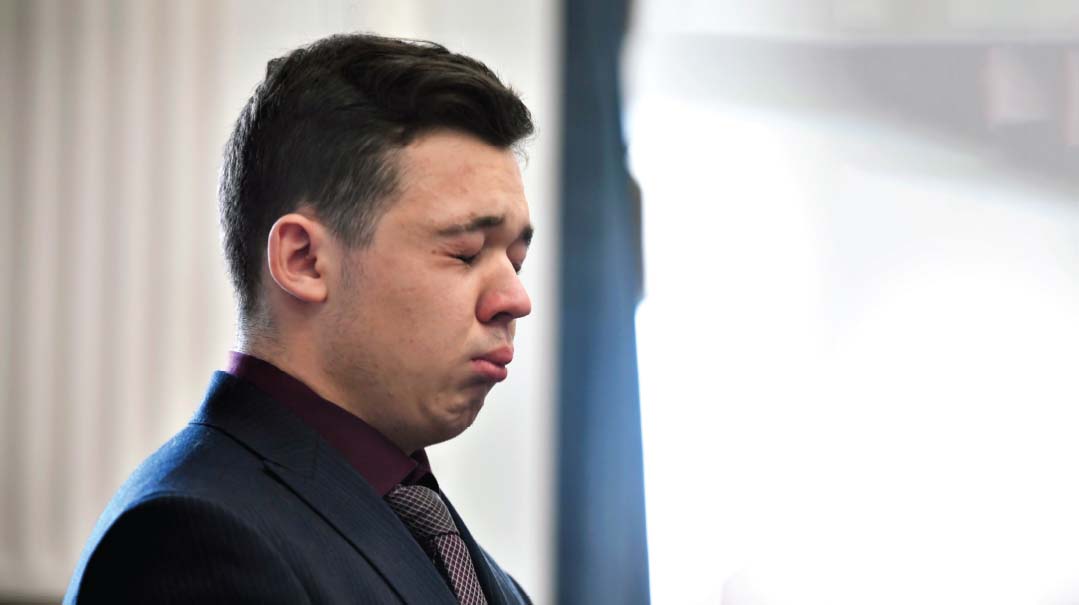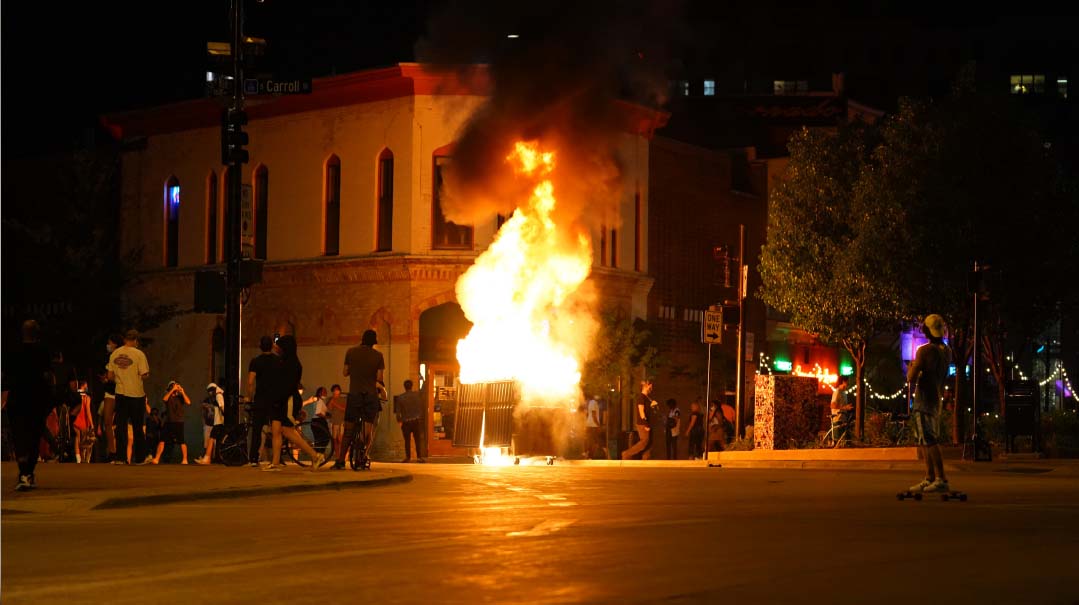Trial by Media

Ben Brafman on why Kyle Rittenhouse’s over-confident prosecutors failed

It’s perhaps only America that could produce the sequence of events that led to the trial and acquittal of Kyle Rittenhouse for killing two men last summer.
In August 2020 — as the Black Lives Matter protests were unfolding across the country — police in Kenosha, Wisconsin shot a black man suspected of assault, who was carrying a knife. Widespread unrest, including the torching of a car dealership, took place over the next two nights. On the third, then 17-year-old Rittenhouse, armed with a rifle, joined other so-called militia volunteers in patrolling the streets to protect a local business. Chased by protesters, Rittenhouse attempted to run and after falling, shot three people, killing two and wounding one, all white men.
Very quickly, a partisan narrative set in, fed by a media that had pre-judged events. Then presidential-candidate Joe Biden implied that Rittenhouse was a white supremacist. But as some independent-minded journalists noticed early on, that narrative was false.
“It seemed pretty clear, simply from watching the videos and reading the relevant laws and legal analysis, that Rittenhouse at the very least had a decent self-defense case in a post-verdict analysis,” wrote Brooklyn-based journalist Jesse Singal. “And yet I watched many influential media figures and politicians turn Rittenhouse into a monster who had committed obviously premeditated acts of murder, in a manner that ran dozens of laps ahead of the available evidence.”
That skepticism was vindicated by last week’s verdict in which Rittenhouse was cleared of the charges. But as Singal points out, the case has wider meaning: It points to an ever-growing “Balkanization” of media coverage, in which “every major news story generates at least two distinct versions of reality that are summarily adopted as true by many partisans.”
Beyond the media, the Rittenhouse saga is also a story of America’s lax gun laws that enabled a teen to carry a knock-off of an M-16 assault rifle.
According to Ben Brafman, a leading criminal defense attorney, the verdict — which triggered widespread condemnation from Democrats — also points to the enduring robustness of the self-defense argument. And the false media narrative, he says, led to a complacent prosecution, in a case that seems destined to become epoch-defining.

Kyle Rittenhouse’s acquittal has dominated news reports for days — how does the verdict strike you from a legal standpoint?
I’m not surprised by the verdict because firstly, under US law a claim of self-defense places the burden of evidence on the prosecution. They need to prove beyond a reasonable doubt that the use of force was unreasonable, and the opposite turned out to be true. Second, from what I saw of the trial, the prosecution was ineffective. It could be a lack of experience or of preparation, but they didn’t do a good job.
How did that present itself during the trial?
Because of the cellphone and drone footage, it became clear that Mr. Rittenhouse had been chased by those he shot. The prosecution brought up one of those who was injured as a witness, but instead of strengthening their case, he admitted that he’d pointed a gun at the defendant. Their examination of the defendant was poorly done because what emerged was that Rittenhouse actually felt threatened. And they accused him of unlawfully owning a weapon, a charge that the judge dismissed, which showed that they weren’t prepared.
How is it possible that in a case at the center of a national storm, the prosecutors hadn’t done their homework?
Part of the reason was that the prosecution swallowed the media’s portrayal of events in the buildup to the trial, which was that Kyle Rittenhouse was a white supremacist who had deliberately gone to another state to cause trouble. That wasn’t true: He had deep connections to Kenosha, which was only a few miles away and where his father was living at the time, and there was no evidence that he was a white supremacist.
But since they’d absorbed that narrative — in fact, they thought the white supremacy was written all over his face — it was clear to them that no one would think of acquitting Rittenhouse.
That lulled them into a false sense of security; that they couldn’t lose. That of course is a very dangerous approach for a legal team to take.
If the prosecution failed, what was the defense’s strategy from a legal and emotional standpoint?
The defense did a good job essentially by cross-examining the witnesses in a way that suggested some support for self-defense. And when the defendant took the witness stand and hyperventilated and cried, I thought it was genuine. Many media outlets accused Rittenhouse of acting, but he reacted the same way when he was declared not guilty. He collapsed. People forget that he’s practically a kid — he was only 17 at the time of the shootings.
What’s your personal approach to calling the defendant to the stand — is it not a risky strategy?
It’s a very unusual decision to call a defendant as a witness. In US law, the defendant doesn’t have to testify, and remaining silent doesn’t undermine credibility. That’s why the judge rebuked the prosecution for suggesting differently.
In this case, the defense took a justified risk because had he not taken the stand, self-defense would have been more difficult to prove. Remember, because of the camera footage, it wasn’t a question of what happened but of why it happened. Once he testified, his youth — almost childlike — spoke for itself. It humanized him.
Besides media coverage, public opinion was starkly divided by the case, mostly along partisan lines. How did that influence the jury?
Media coverage was the real issue here. It was relentless, and almost totally biased against Rittenhouse. Celebrities like LeBron James weighed in on the case, condemning Rittenhouse for fake tears and hoping to convince the jurors. That was highly inappropriate — he should stick to playing basketball. But the jury to their credit filtered all that out, and decided based on the law and the evidence in front of them.
Most judges also wouldn’t have allowed TV cameras into the courtroom; it creates a dynamic where the judge and prosecutors themselves become part of the story, as happened here.
That’s what happened in the O.J. Simpson trial, where the judge was condemned for becoming a player. It’s a temptation for a previously little-known judge or prosecutor.
Self-defense aside, what’s worrying is the idea that a teenager gets hold of a gun and puts himself in a situation like this.
Look, the defendant made a sobering statement afterward in which he said that he wouldn’t do it again. If he’d been an extremist, he wouldn’t have admitted to that. And you have to bear in mind what the verdict actually said: He wasn’t declared “innocent,” but “not guilty” — meaning that the prosecution failed to disprove his claim of self-defense.
What’s next for Rittenhouse, how does a person emerge from this kind of experience and go back to life after a high-exposure trial like this?
He’ll never go back to a normal life, because people in the US are so divided over the case. There are a lot of very dangerous people on the other side. Both he and his lawyers have received death-threats.
(Originally featured in Mishpacha, Issue 887)
Oops! We could not locate your form.






